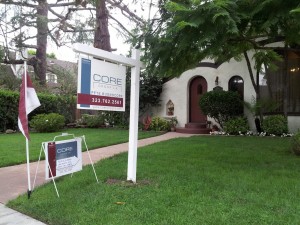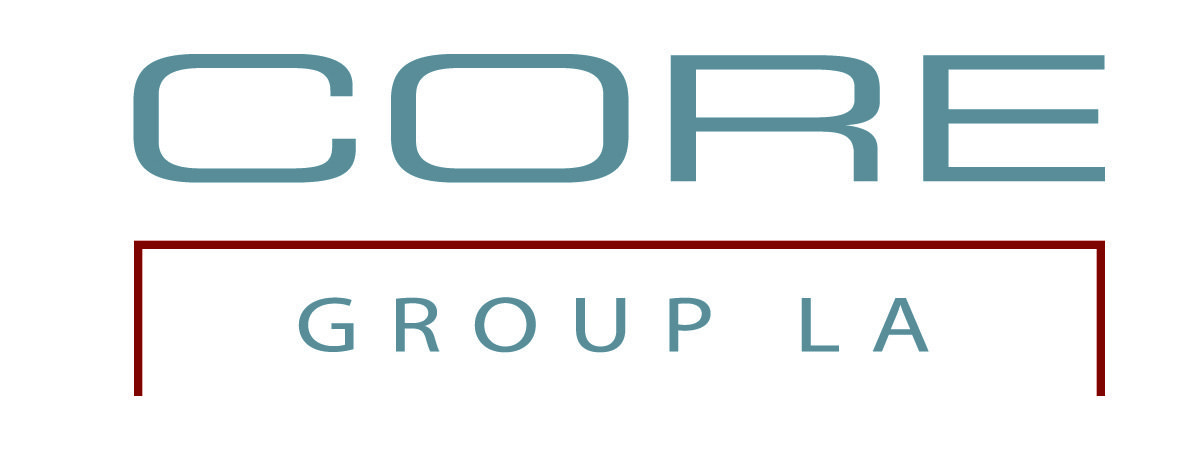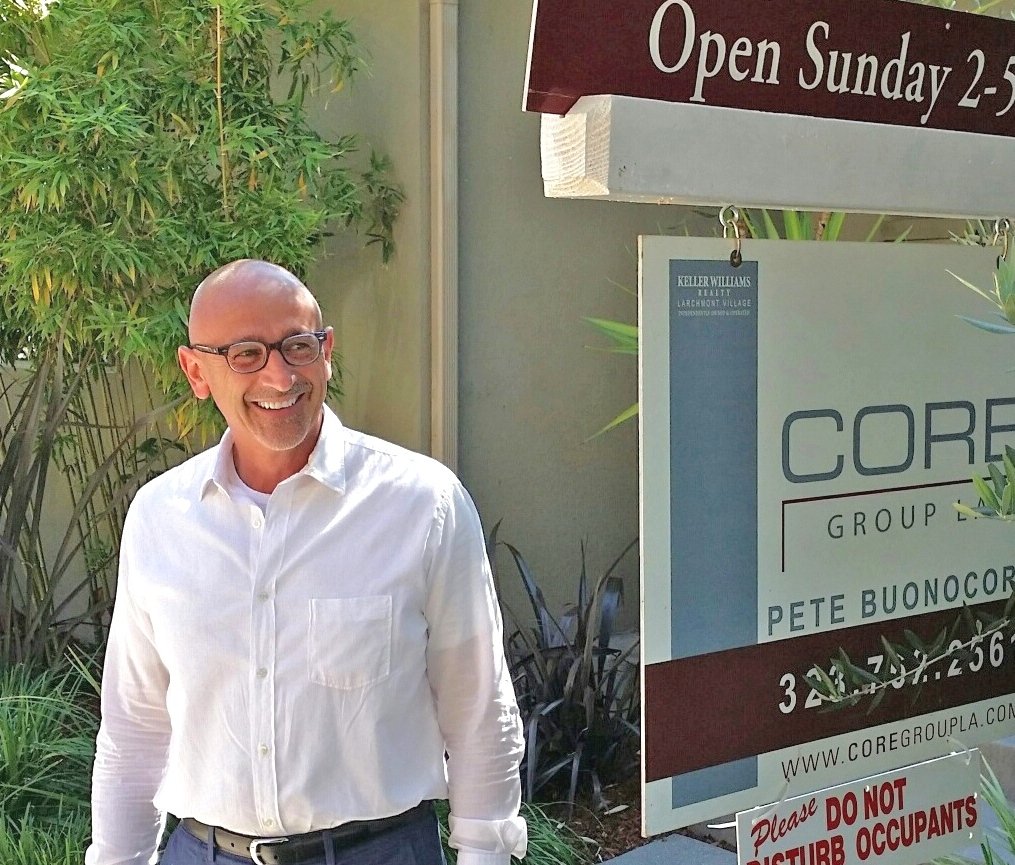What is the difference between a foreclosure and a short sale?
Foreclosures and short sales are both options for homeowners who fall behind on mortgage payments, but it’s important to understand the difference between these two processes. (By Cathy Ericson for Realtor.com)
So if you’re struggling to pay your mortgage and aren’t sure what to do, allow this primer on foreclosures vs. short sales to set you straight. Here’s what these things are, their pros and cons, plus how to tell whether a short sale or foreclosure is the better option for you.
What is a short sale?
![]() A short sale happens when a homeowner owes more on the mortgage balance than the market value or sale price of the property at the point the owner wants to sell. For a short sale, the homeowner is essentially asking the mortgage lender (typically a bank) to accept a lesser amount than the total mortgage owed. For example, if the homeowner sells the house for $250,000, but the remaining mortgage loan balance is $300,000, the seller is essentially $50,000 “short” on paying the lender back. That’s a short sale.
A short sale happens when a homeowner owes more on the mortgage balance than the market value or sale price of the property at the point the owner wants to sell. For a short sale, the homeowner is essentially asking the mortgage lender (typically a bank) to accept a lesser amount than the total mortgage owed. For example, if the homeowner sells the house for $250,000, but the remaining mortgage loan balance is $300,000, the seller is essentially $50,000 “short” on paying the lender back. That’s a short sale.
Like other homes for sale, a short sale property will be listed by a real estate agent (typically one who specializes in short sales).
For the seller, one thing you’ll want to watch out for is a deficiency judgment. A deficiency judgment is where, after a short sale ends, the mortgage holder seeks to recover the “deficiency” (the money it lost in this home sale) through a court order placing a lien on the debtor for further money (so in this case, a mortgage lender acts as a lien holder). Some states outlaw this practice, but you should ask, just so you aren’t blindsided by it later.
What is a foreclosure?
Foreclosure is a legal process that happens when a homeowner (although “borrower” might be a more appropriate term from the perspective of the lender) is unable to make mortgage loan payments for a significant period of time.
After three to six months of missed mortgage payments, a lender will issue a Notice of Default with the County Recorder’s Office. This notice is to let the borrower know he is at risk of foreclosure—and when they foreclose, the current owner will be evicted.
After receiving the Notice of Default, borrowers can try to settle their loan debt with their lender either through a short sale or by paying the mortgage balance they owe. This period is called pre-foreclosure and can last anywhere from 30 to 120 days after receiving the Notice of Default.
If the debt is not recouped, lenders will step in and foreclose on the property. To foreclose, they’ll schedule a foreclosure auction to sell the house to a third party. Foreclosure auctions will be advertised in local newspapers and are typically held at either the property or the local courthouse, says Cathy Baumbusch, a real estate agent with Re/Max Allegiance in Alexandria, VA.
If no one buys the home at auction, the lender becomes the owner and it’s considered a bank-owned or REO (real estate–owned) property.
Another option to avoid foreclosure is to do a deed in lieu of foreclosure. A deed in lieu of foreclosure is a transaction where a homeowner transfers title or ownership of the property to the lender in exchange for being released from their loan debt-free and clear.
What is the difference between a short sale and foreclosure?
 Short sale and foreclosure are similar in that they’re both financial options for individuals who own homes but find themselves in financial distress. Both also have a negative impact for your tax return, credit score and credit report, and future prospects getting a loan.
Short sale and foreclosure are similar in that they’re both financial options for individuals who own homes but find themselves in financial distress. Both also have a negative impact for your tax return, credit score and credit report, and future prospects getting a loan.
But short sales and foreclosures differ greatly in process. A short sale transaction occurs when mortgage lenders allow the borrower to sell the house for less than the amount owed on the mortgage. The foreclosure process occurs when lenders repossess the house, often against an owner’s will.
Timing also differs: Short sales can take up to one year to close, while foreclosures generally move along much faster because lenders are intent on recovering the money they’re owed.
Furthermore, a short sale is far less damaging to your credit score than foreclosure. In fact, people who go through the short sale process can usually buy another house without having to wait, although securing a second mortgage might be more challenging. Foreclosure, on the other hand, will stay on your credit report for seven years. You’ll also have to wait five years to buy another house.
If paying your mortgage has become a real challenge, the smartest step to take is to talk to your lender to discuss your options. Chances are, your lender will be able to offer the best plan of action based on your unique situation and the laws in your state.
How short sales and foreclosures work for buyers
Short sales can be a good deal for bargain house hunters, but buying a short sale can be a headache.
“I wouldn’t recommend purchasing a short sale for first-time buyers, who may get frustrated with the extra paperwork and long waits,” says Marlene Waterhouse, owner of Short Sale Solutions.
 The average short sale takes around 90 to 120 days, and sometimes even longer. Why? Mortgage lenders often won’t approve the sale without buyers agreeing to its demands like paying for many additional fees such as repairs, wire transfers, and closing costs. These are all costs the seller would typically be on the hook for, but in a short sale, the bank is stuck with the bill. Therefore, to reduce its costs, the bank may try to negotiate these costs with the buyer.
The average short sale takes around 90 to 120 days, and sometimes even longer. Why? Mortgage lenders often won’t approve the sale without buyers agreeing to its demands like paying for many additional fees such as repairs, wire transfers, and closing costs. These are all costs the seller would typically be on the hook for, but in a short sale, the bank is stuck with the bill. Therefore, to reduce its costs, the bank may try to negotiate these costs with the buyer.
Other than the involvement of the bank, a short sale will proceed much like other sales. Buyers can get a mortgage and have the opportunity to seek an inspection.
Foreclosure sales, however, are different. For one, foreclosure properties can be purchased only with cash; no traditional loan will be granted for a foreclosure.
While a foreclosure can be a great deal for home buyers (particularly foreclosures that have been taken over by the Federal National Mortgage Association, better known as Fannie Mae), they also come with some risk, says Baumbusch.
“Keep in mind that a foreclosed home sold at the courthouse is bought without warranty and sight unseen,” she adds.
That means you will not be able to have a foreclosed home inspected for structural problems, mold, infestations, or other issues with the house. You will also assume all liens that might be tied to the property.
Written By Cathy Ericson for Realtor.com
https://www.realtor.com/advice/sell/difference-short-sale-and-foreclosure/?iid=rdc_news_hp_carousel_theLatest
Photo by rawpixel on Unsplash
Photo by Jessica Furtney on Unsplash




